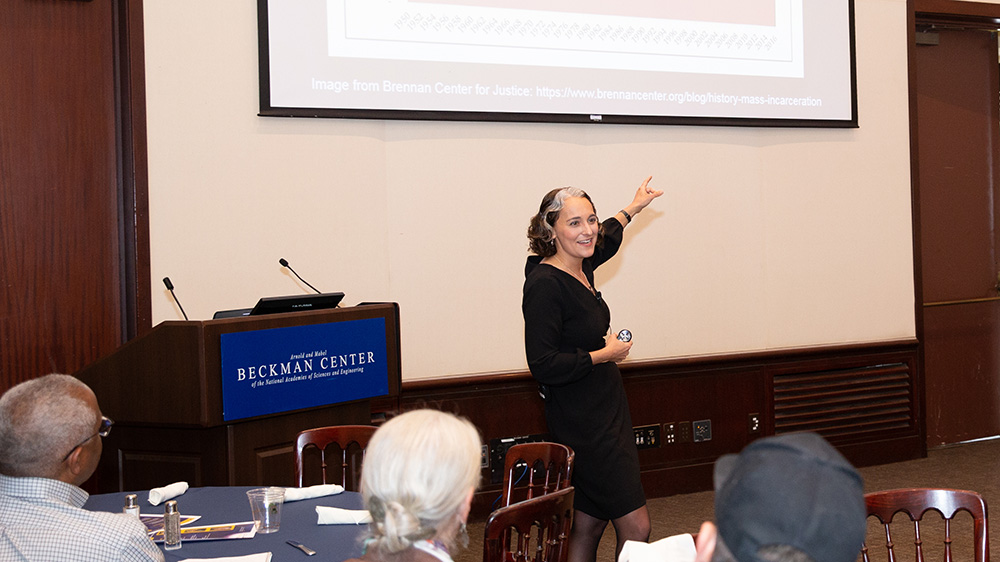
Keramet Reiter delivers Daybreak Dialogues talk
Prison reform was Keramet Reiter’s topic at the School of Social Ecology’s recent “Daybreak Dialogues” breakfast series.
The associate professor of criminology, law and society informed the audience about prison conditions, sentencing laws and programming opportunities for prisoners and what’s been changing. Key takeaways:
- Changes in prison conditions — less overcrowding (in California, prisons are down from about 167 percent of capacity to about 130 percent) and less solitary confinement (nationwide, about 80,000 prisoners are in solitary, 20,000 fewer than last year).
- Changes in sentencing laws — California has been reforming its three-strikes law, which required defendants convicted of any felony with two or more prior strikes to serve a state prison term of at least 25 years to life. For example, in 2012, voters approved Proposition 36, which amended the law so those whose third strikes were neither serious nor violent could no longer be sentenced to 25 years to life. Nationwide, mandatory life without parole sentences for juveniles have been found unconstitutional.
- Changes in programming opportunities — more resources, such as Pell Grants, have been allocated to help prisoners get a college education in California and nationally.
“How we treat prisoners matters,” she said. “Every month, about 100 people are released directly from solitary confinement into the streets in California. That’s why prison conditions matter. These people come home and they become your neighbors. Imagine what it’s like to spend 10 or 15 years alone with no human contact and a flourescent light on all the time inside a concrete and steel box and then imagine leaving and going onto the busy streets of San Francisco or Los Angeles…. People are coming home and if they come home really traumatized, it’s really hard to reintegrate.”
Watch Reiter’s Daybreak Dialogues talk below or on YouTube.
Daybreak Dialogues is part of the School of Social Ecology’s Changemakers’ program.
— by Mimi Ko Cruz / banner image by Patricia DeVoe